Interview and video by Jedarrian Jones. Photos provided by Ability Connection.
Meet Phillip Dobbins, whose journey with Ability Connection exemplifies the organization’s mission to enrich the lives of people with disabilities, one person at a time. From overcoming personal challenges as a client to becoming a secretary on the staff, Phillip’s story is a testament to the organization’s dedication to providing individualized care and support. Ability Connection empowers individuals with disabilities, ensuring their personal choice, privacy, and dignity while fostering a strong sense of community.
Phillip met with us to share his personal experiences and insights, reflecting on how Ability Connection has supported him and helped shape his role in the organization. His story highlights the impact their tailored programs make in the lives of those they serve.
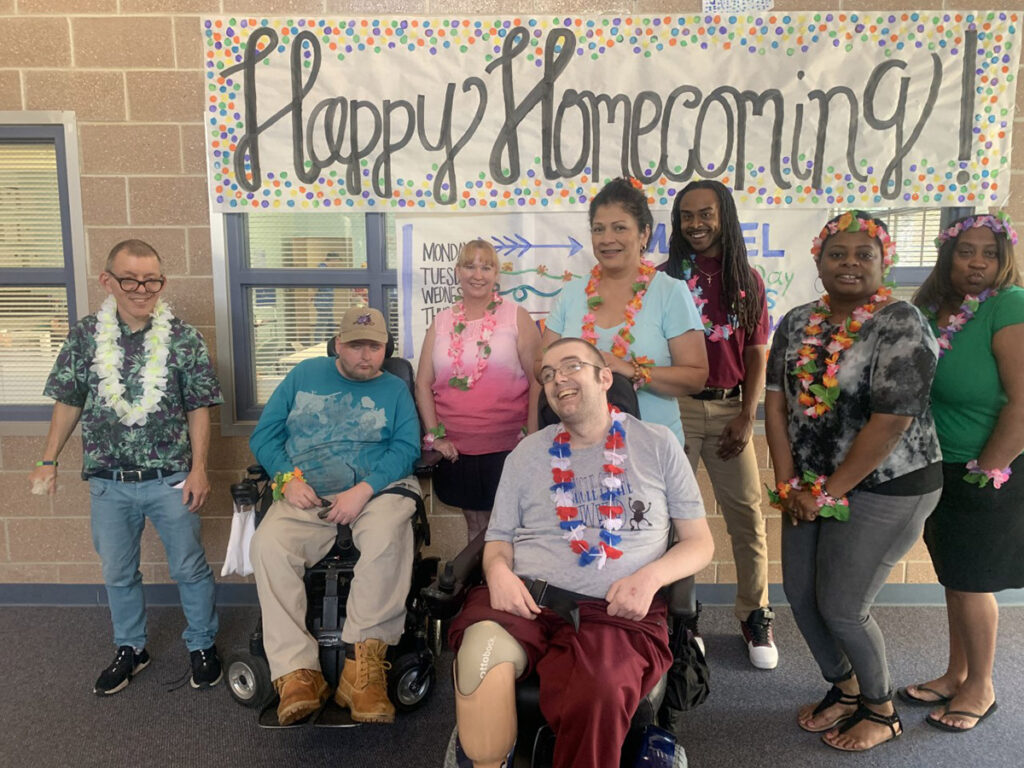
It all started about six years ago. I was living in another group home, but unfortunately, they medically neglected me. I developed necrotizing fasciitis, which led to the loss of my leg, and I also had double pneumonia. I was in the hospital for quite a while. When I needed a new place to go, Ability Connection was the only company that reached out to my mom. A lot of places were willing to take me because of my cerebral palsy or because of my amputated leg, but not both.
Chris McLaughlin, one of the representatives at Ability Connection, contacted us. Now, I live in one of the company-run houses—Becky’s House—with Marcus, Bo, and Oscar. It’s a great place to be, probably the best. We’re treated like men there, not just numbers. Our families are welcome, and they know us. In fact, our house is kind of the lively one out of the five homes we have here. We’re probably the most independent-minded and free-spirited. I’m a gamer, so I’m always doing that or keeping in touch with my family. I’m a devoted uncle to my eight-year-old niece, Addie. Overall, this is just a great place to build your life around.
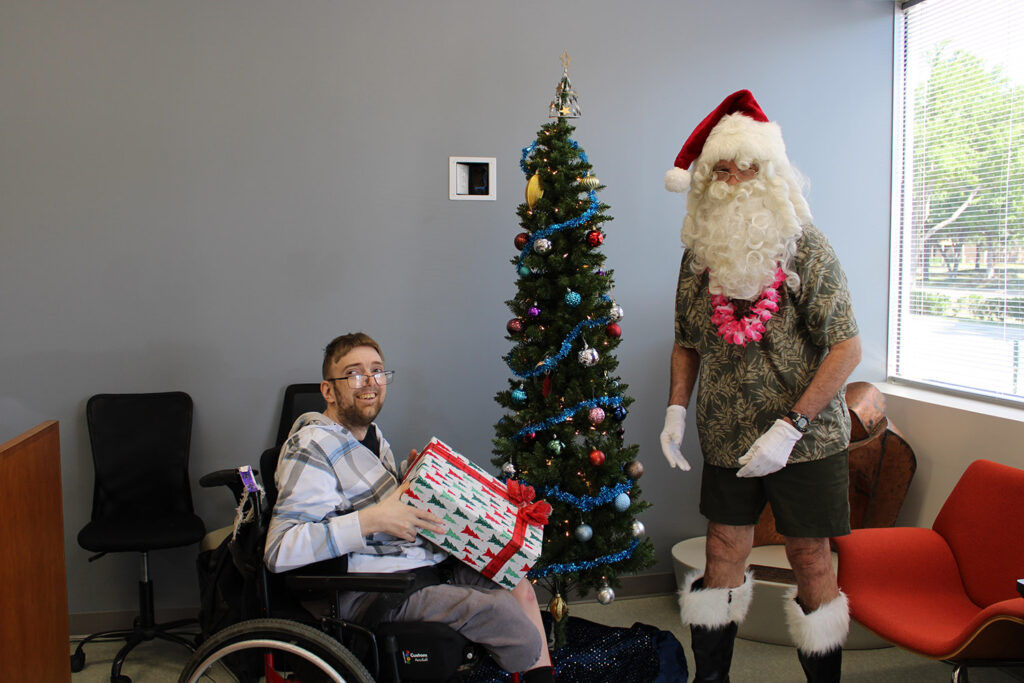
Philip: It was actually quite easy. When I first joined Becky’s House, they wanted someone to work alongside Marcus, another client here, because he didn’t have anyone there with the same intellectual interests. They were looking for someone who could engage with him more, and Marcus and I hit it off right away. You guys should talk to him sometime—he’s a brilliant entrepreneur. He even runs the food cart here.
When I became a staff member, it was already in the works that I would have a job here. That was really important to my mom—she wanted me to be productive. I love being a secretary and using my knowledge to help my fellow clients. It’s fulfilling to show them that they can be more than their disability or what others think they should be. I want them to strive for more than what society expects.
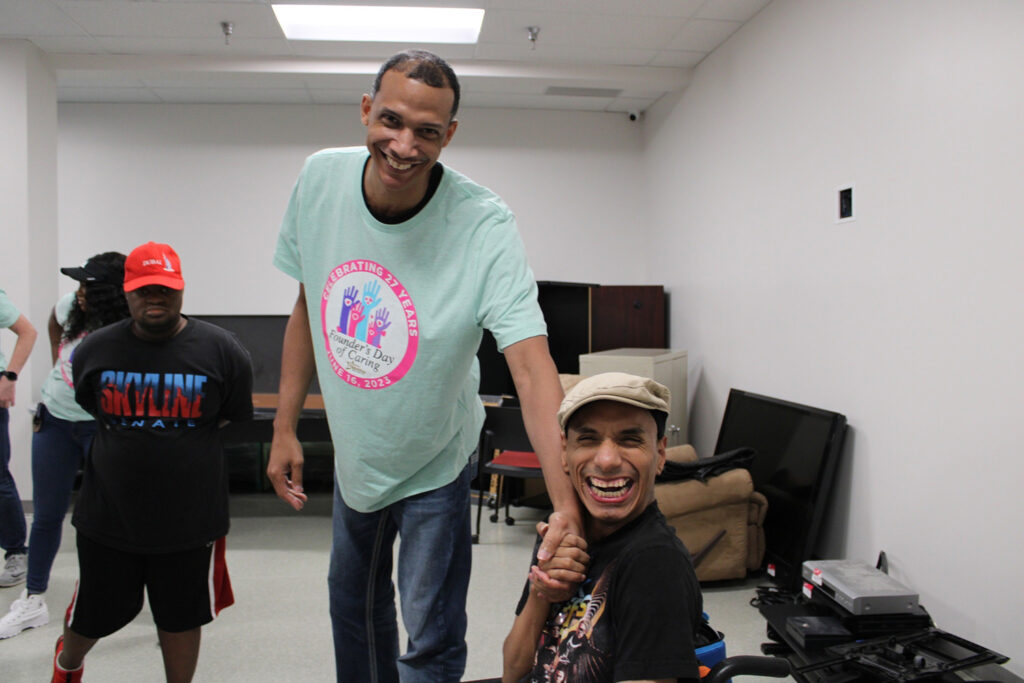
Philip: The most important thing I’ve learned is something I’ve been taught my whole life through my parents—improvise, overcome, and adapt. They’ve been married for 37 years, and that mindset has been a part of my life from the start. It’s what we do here at Ability Connection. Things aren’t perfect, but nothing ever is. What’s key is that we allow ourselves to grow, change, and evolve as a company.
We’re a family here. Everyone knows each other; it’s not separated into different parts, but rather, a whole. Over the 73 years this company has existed, we’ve grown and evolved. We’ve changed names, and now we’ve even got a brand-new location. As long as we keep growing and changing, we’ll continue showing society what we’re capable of.
Here, it’s not about race, religion, gender—none of that matters. We all have challenges, but we work together to make this environment the best it can be. With more people joining us and hopefully more funding, we can lead the way, especially in a state like this. Even though Texas has a leader with a disability, we still have a lot to prove about what we’re capable of.
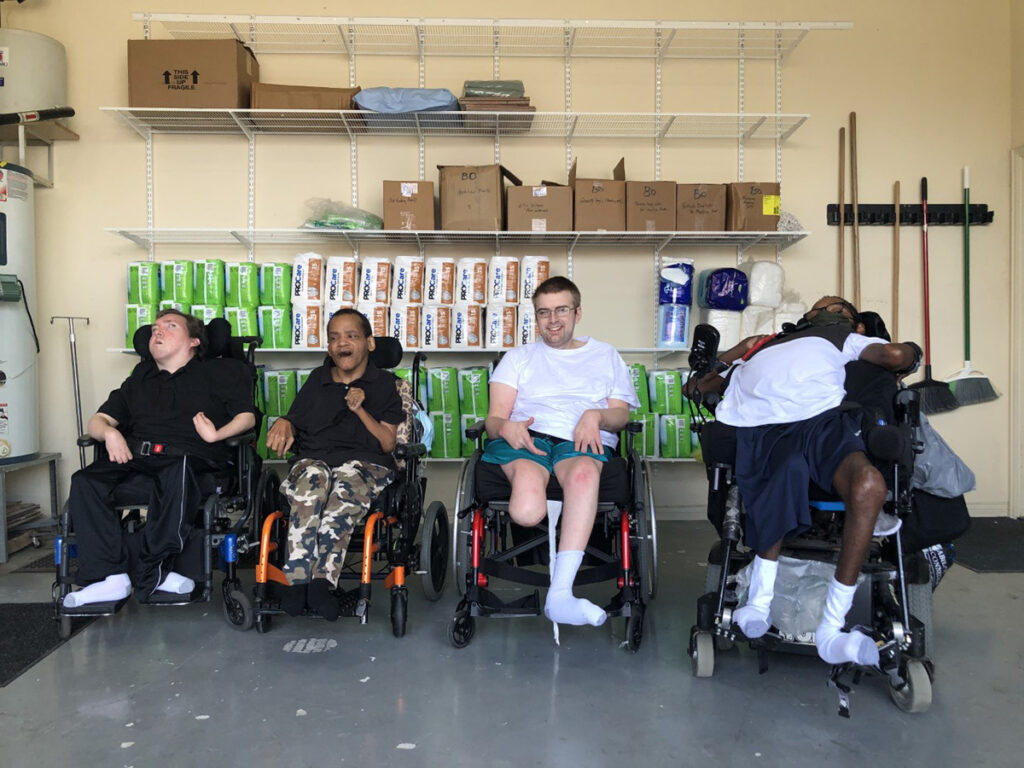
Philip: There are quite a few, but I’ll go with one that’s really personal because not everyone saw it. When I first came here, I was recovering from my amputation, and I was scared and defensive. One day, I broke down in the lobby and just cried. In that moment, I realized that no matter what happens, I was going to be okay. It’s hard to explain where that feeling comes from, but it’s like something inside you just knows, and you feel that catharsis. It’s humbling, and it gives you the sense that you’re on the right path.
This place can be so great, not just because of what I’ve experienced, but because of what other people go through here every day. Many of them haven’t had the same background I have. I’ve been fortunate to have a loving family, a good home, and to have been shown love, care, and the ability to dream. It’s like being part of a family—you know, I have a sister, so I understand how siblings fight for space and attention, but in the end, we care about each other. That’s what this place is like.
It’s not just about the residents; it’s also the staff, and even the people who come in from the outside. They meet us and see that we’re not defined by a script or a stereotype. We’re all different, with different needs, wants, and dreams.
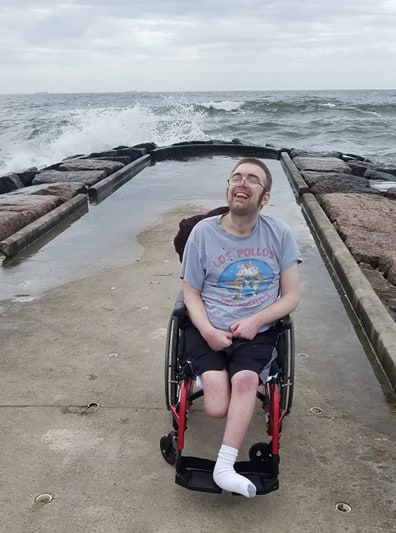
When people ask how we teach the individuals here, I like to say, “The real world is our classroom.” This is just a trial space. Out there, things are constantly changing, and the world isn’t designed for our needs. But if we can give people the confidence that they can make it, that they can overcome and adapt, they’ll realize they can do anything they set their minds to.
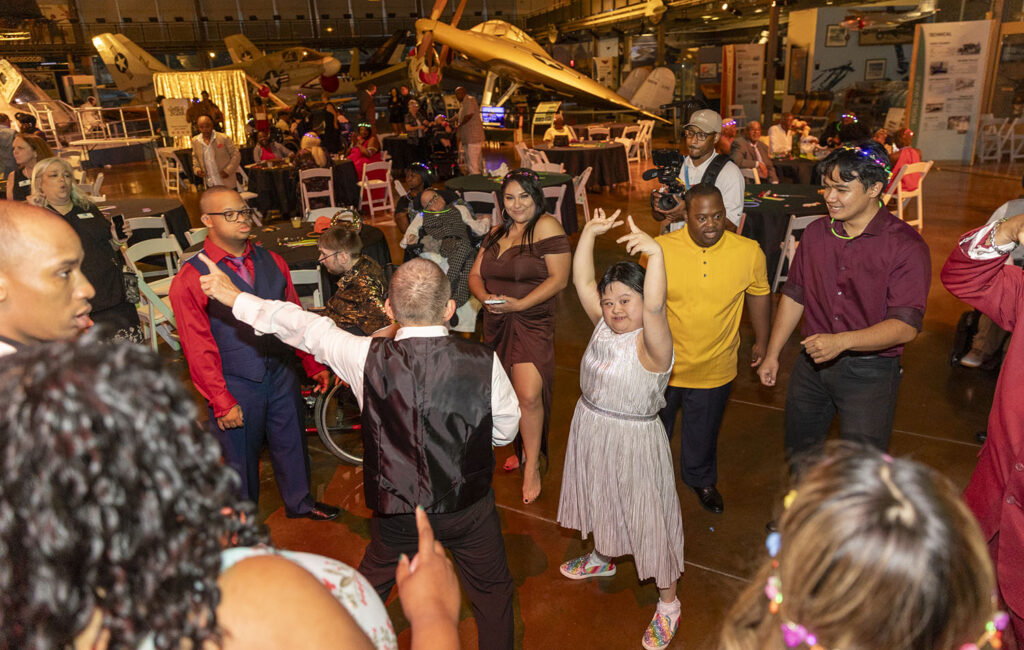
Philip: My advice would be to be thankful for what you have. In my experience, I’m incredibly grateful for my family, who have been there for me in so many ways, especially after my amputation. I’m also thankful for the people here at Ability Connections and for the opportunity to assist others with what I’ve been blessed with.
I hope that anyone who sees this will find it in their heart to give something to this place. It doesn’t matter how much, just that it comes from a place of meaning, because we really appreciate it here. It could affect someone you love—maybe not now, but as I tell people, everyone gets older, and you’ll eventually need help. You want it to be there when you need it, not just wish it was.
That’s how I feel about this place—we’re changing what people expect when it comes to supporting the physically and mentally challenged community.
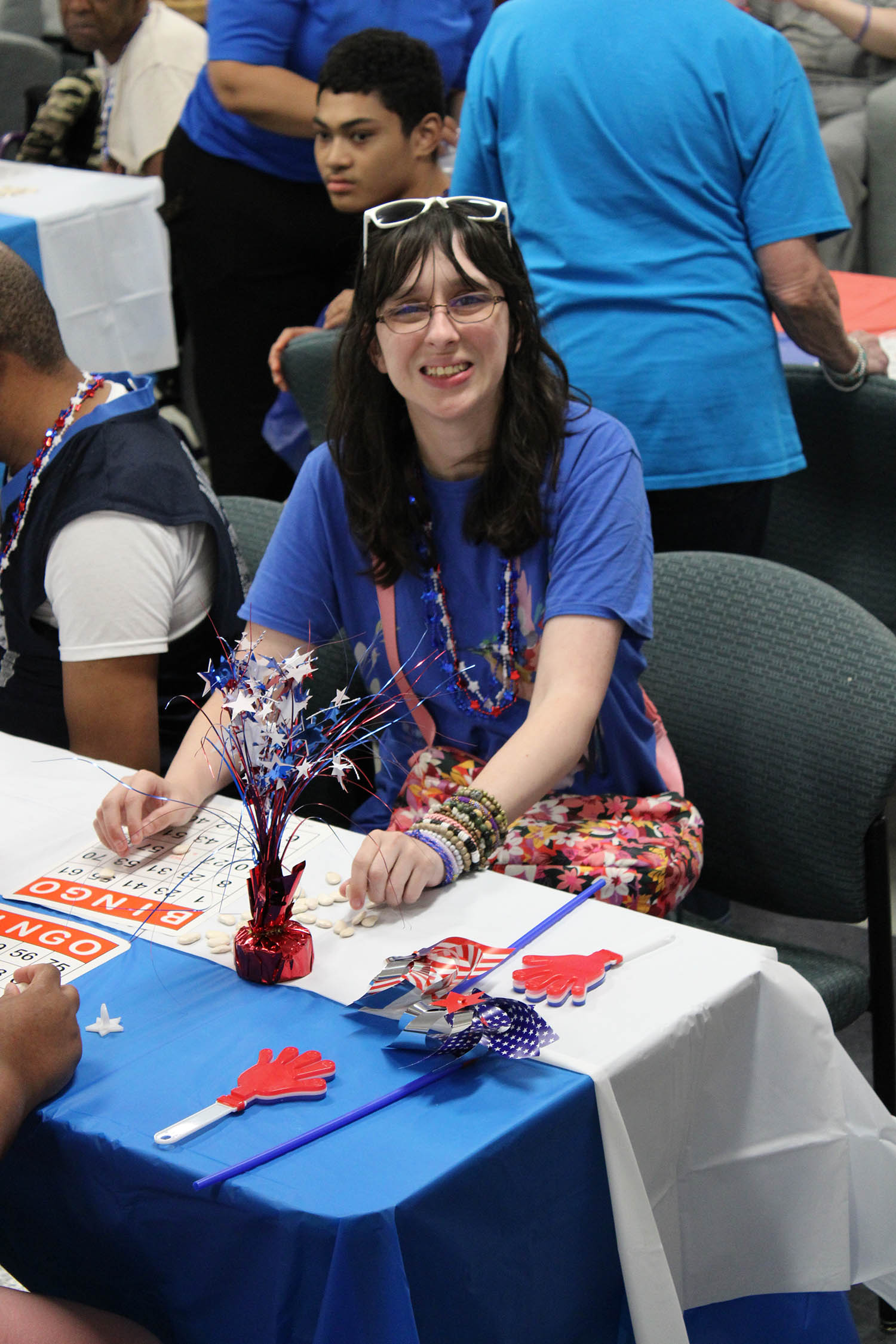
For adults, we offer a variety of activities and outings. We take participants to baseball games, hockey games, and concerts—one of our biggest partners is the Texas Brahmas hockey team. We’re always looking for new opportunities, so anyone interested in partnering with us to create more experiences is welcome.
On the personal side, I love going to concerts—I’ve seen Elton John and Metallica—and it’s amazing to think about offering similar experiences to others through Ability Connection. We also hold an annual fundraiser called Vine and Dine, which is our biggest fundraising event of the year. It’s scheduled for September 10th. Additionally, we just had our member formal a few weeks ago, and the photos and videos will be up on our website soon.
On Fridays, we have improv classes, which are one of my favorite activities here. I used to help coordinate that but have stepped back to focus more on securing better funding and creating more opportunities for everyone.
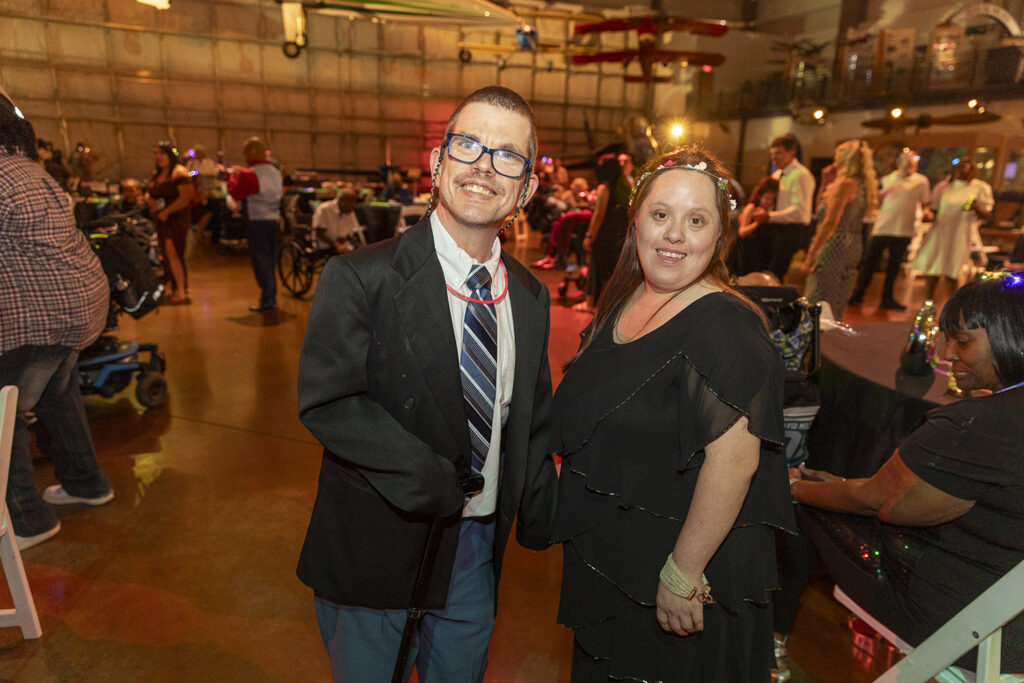
Philip: You know, I just hope that the people watching this are open-minded to what we do and can experience this place for themselves. I also hope they open their hearts and minds to us because we’re working towards a more inclusive society for everyone. We all have hopes and dreams, and I believe that with support, we can make them a reality.
As my father says—and happy belated birthday to him!—”a rising tide lifts all boats.” By making things better for me, for the people here, we make things better for everyone. Ability Connection is an organization with deep roots, but we’re learning new tricks and evolving. The more help we get, the more people we can reach, and we’re always open to suggestions and new opportunities for our clients. I really hope this has been helpful for you all, and I wish everyone the best of luck and fortune.
Dallas Doing Good is proud to continue our partnership with the Communities Foundation of Texas for North Texas Giving Day! This year, we’re spotlighting outstanding organizations that align with CFT’s focus areas—Health, Wealth, Living, and Learning.
Join us in supporting these impactful organizations. Your donations help drive innovation and support essential services in our community. Learn more and give today at Ability Connection’s North Texas Giving Day page. Together, we make a difference!
Sign up with your email address to receive good stories, events, and volunteer opportunities in your inbox.